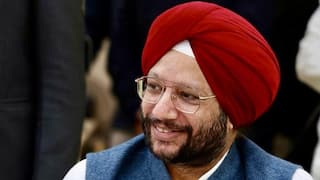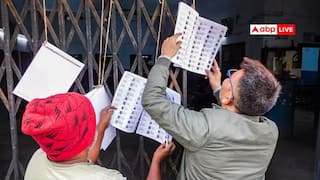UK Elections: Brits To Vote In Polls Today As Sunak Tries To Keep Starmer Out Of 10 Downing Street
UK Elections: Polls have overwhelmingly predicted a victory for the Labour Party, first after 2005, making Keir Starmer the party's first prime minister since Gordon Brown left office in 2010.

The Brits are set to vote on Thursday in historic polls as the country's political leaders made a final frantic push on Wednesday in an election campaign expected to return a Labour government after a 14-year rule of the Conservatives. The contest is between Prime Minister Rishi Sunak from the Conservative fold seeking a re-election and Keir Starmer from the Labour Party who has been given a higher probability of winning by the pollsters.
However, Sunak insisted he was still "fighting hard" despite one of his closest allies conceding that Tories were heading for an "extraordinary landslide" defeat on Thursday, as per AFP.
An 11th-hour blow came for the Conservatives when the Sun tabloid, famous for backing election winners, endorsed Keir Starmer's Labour.
The polls have overwhelmingly predicted a victory for the Labour Party, first after 2005, making Starmer the party's first prime minister since Gordon Brown left office in 2010.
That outcome would see Britain swinging back leftwards to the centre ground after almost a decade and a half of right-wing Conservative governments, dominated first by austerity, then Brexit and a cost-of-living crisis.
Starmer, 61, travelled across the UK to shore up support for the Labour and warn against complacency in the campaign's final hours.
"If you want change, you have to vote for it," he told reporters at an event in Carmarthenshire, south Wales, reported AFP.
"I'm not taking anything for granted," he added.
Sunak, 44, meanwhile sought to hammer his oft-repeated warnings that implying tax rise and weaker national security with the returning of the Labour Party, jibes which the latter has branded a desparate attempt to cling to power.
The Tories also stepped up their ante warning the voters to stop the prospect of Labour winning a "supermajority", which Labour fears is intended to hit turnout.
Related Video
Uttarakhand News: Winter Chill Grips North India; Kedarnath Dham Covered in Snow





































